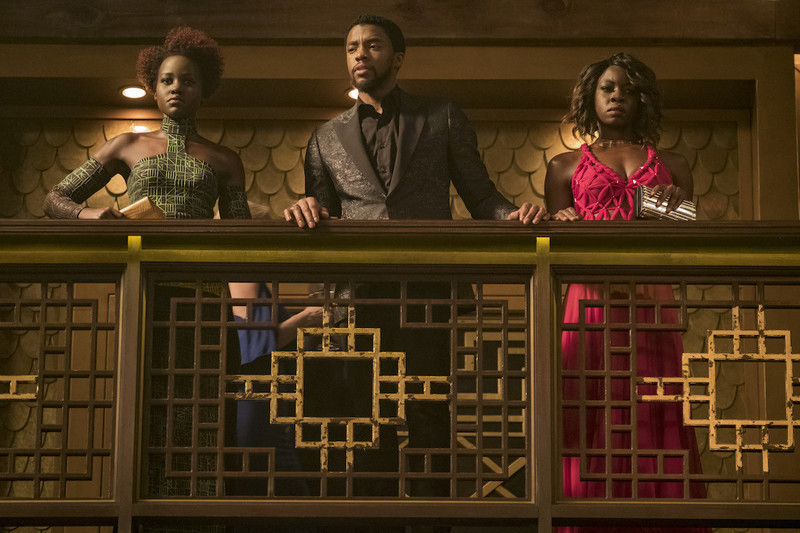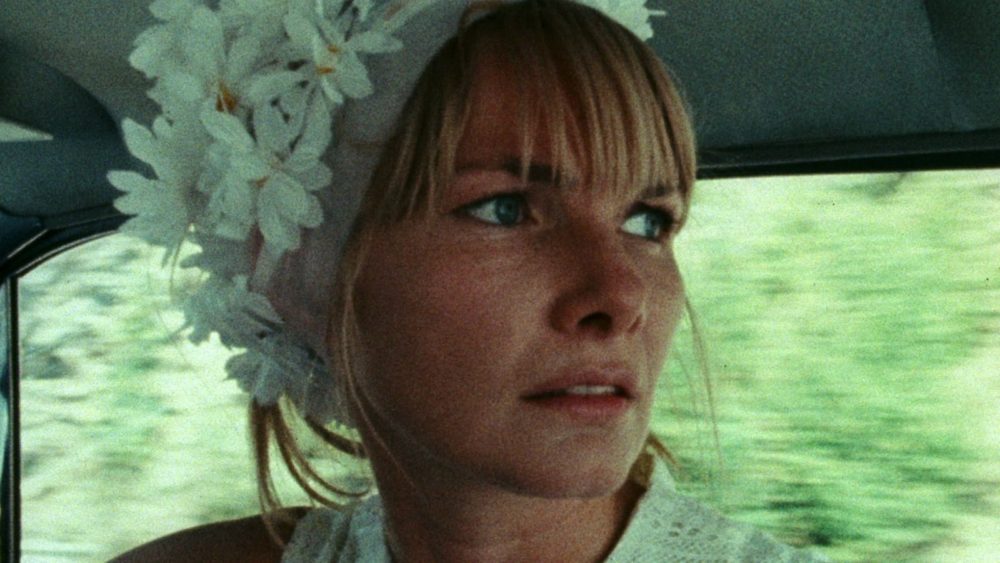Current concerns about gender parity, diversity and inclusion apply to the work of film critics, as well as that of moviemakers. Ongoing studies show women are egregiously underrepresented in the critical conversation about films.
Last year’s USC Annenberg Inclusion Initiative’s Critics Choice report, based on reviews of 300 top-grossing films from 2015 to 2017 posted on Rotten Tomatoes, showed only 21.3% of evaluated reviews were written by female critics—a ratio of 3.7 male reviewers to every 1 female. The stats related to female film critics of color and from other minority groups are even more egregious.
<span class="s1" These alarming unacceptable numbers reinforce female film critics’ demands for greater representation in print, broadcast and online media, as well as in awards-presenting groups such as the influential Broadcast Film Critics Association, which currently lists 82 women (including myself) among its 334 members, roughly 25%.
But statistical studies don’t quantify all the frustrations female film critics face, nor do they elucidate why inclusion of diverse women’s voices –cis and transgender, all races, ethnicities and backgrounds—is critical to the cultural conversation. They recognize neither women’s distinct perspectives on film nor the credos and goals—beyond parity, that is –that differentiate women film critics—especially those identifying as feminists—from the overly influential pack of men who write about film.
It’s time for a deeper discussion about feminist perspectives on film, one that actually addresses credos and goals, especially as they influence film/genre preferences and the social impact of film criticism.

To engender such a discussion, I interviewed several outspoken Alliance of Women Film Journalists members, requesting their definitions of feminist film criticism, and asking about their personal goals and credos as self-identified feminist film critics.
AWFJ members Marilyn Ferdinand, Roxana Hadadi, Alexandra Heller-Nicholas, Esther Iverem, MaryAnn Johanson, Loren King, Nell Minow and Martha P. Nochimson hail from diverse backgrounds and have unique voices. If you’re unfamiliar with their writings, I suggest you read them on AWFJ.org.
To their credit, all gave me comprehensive, well-considered, fully detailed remarks that read like personal manifestos. Their cogent commentaries are too long to quote here in full. So, with apologies, I’m condensing them into an overview that is by no means definitive, but is revealing and constructively provocative.
To start, the interviewees agree that extant stats indicate the need for greater representation, but don’t address concerns about devaluation of feminist perspectives and standards. Furthermore, the studies don’t cover ‘smaller’ (ie not top) outlets, where women’s opinions may prevail. Inclusion of only mainstream media indicates acceptance of the established ranking and marketing hierarchy that also excludes ‘smaller’ films produced by independent women filmmakers.
Female film critics comprise a distinct group among all women working in all aspects of the film industry who demand a bigger piece of the pie. Feminist film critics also advocate for a change in the pie’s ingredients.
What is feminist film criticism? What qualifies as a film as ‘feminist?’ Does feminist film criticism adhere to different standards? Does it mitigate the prevailing male-dominated cultural milieu?
The dictionary defines ‘feminist’ as ‘a person who supports feminism.’ ‘Feminism’ is defined as ‘advocacy of women’s rights on the basis of the equality of the sexes.’ In practice, feminism and its manifestations are far more complex than catchall definitions suggest.
<span class="s1" The AWFJ interviewees concur that not all women critics are feminists, and that some male critics embrace feminist concerns in their reviews although they can’t fully understand or ‘feel’ films as women do. The borders are blurry, and that’s okay.
As Nell Minow puts it, “Feminism is the belief in justice and equality regardless of gender. When applied to film criticism, that standard means making sure women’s voices, stories and perspectives are reflected in every aspect of film and writing about film.”
Adding a caveat, Marilyn Ferdinand opines that “Feminism is not gender specific, but it seems that the vast majority of male film critics don’t wrestle with their biases to any great extent.”
Esther Iverem contextualizes her definition of feminism as “a womanist perspective that is intersectional and post-colonial–taking into account issues of class, race, gender identification, national origin and legacies of White supremacy,” concluding that “these factors inform my view of film criticism.”
Roxana Hadadi defines feminist film criticism as “advocacy for gender equality by dismantling the patriarchal system that is often sexist, racist, and classist, and approaching cinema as an institution that reflects the politics and viewpoints of a film’s creators, analyzes how women and men are represented in the film, how their needs are demonstrated or met, how they interact.”
“We use objective measures to analyze art that is inherently subjective, so we bring to our work all aspects of our identity as women, as feminists, and, in my case, as a first-generation Iranian-American, a child of immigrants, as someone who was raised Muslim. All of these elements inform how I approach and analyze film,” says Hadadi.
MaryAnn Johanson asserts that “A feminist perspective on film MUST acknowledge and grapple with the dominance of male perspectives onscreen, and in the culture at large. Feminist film critics must be actively and constantly aware of that, even when enjoying and positively reviewing a film that wholly embraces the male-POV. Yes, it’s possible for a feminist film critic to enjoy films that aren’t feminist and those that are problematic in their depiction, dismissal or erasure of women – if not, we’d have very few films to enjoy.”
Alexandra Heller-Nicholas eschews the term feminist, noting that “I tend to describe my work as ‘interested in gender politics’ rather than feminist because the latter can be read in so many different ways. I write primarily about horror and exploitation film as a matter of personal taste and because I think it is where the imbalances between gender difference and power are rendered most extreme, most transgressive and subversive in sometimes surprising, unexpected ways. But, in short, feminism is the belief that gender difference relates to power in a way that predominantly favors men, and marks a desire to interrogate that with a focus on change.”
What change is wanted? What qualifies a film as feminist? And, what are feminist film critics’ end goals?
Loren King wants to see more complex women characters on screen. “The Bechdel test is useful shorthand for something female filmgoers already know in their gut,” she says, suggesting it doesn’t go far enough. “Women need to own their own stories. I’m drawn to films that present a woman’s inner life with accuracy, honesty and occasional poetry, as exemplified by Agnes Varda’s films, Barbara Loden’s ‘Wanda’ [pictured at top] and, more recently, Marielle Heller’s ‘Can You Ever Forgive Me?’ and Christina Choe’s ‘Nancy.'”
Martha P. Nochimson says, “Strong female protagonists may or may not qualify a film as feminist. As a feminist film critic, I’m more interested in the aesthetics of time and space in storytelling than I am in seeing simplistic movies about women who fight like men. I’m also less than interested in filmmakers who can’t imagine a strong female protagonist without the sacrifice of a male character, as in Patty Jenkins’ ‘Wonder Woman’ and all versions of ‘A Star is Born.’ ‘The Favourite’ is full of strong women, but it strikes me as extremely sexist. At the same time, I wouldn’t say a film critic who respects ‘The Favourite’ and/or ‘Wonder Woman’ is not a feminist film critic. It’s a complicated issue that needs to be debated. Just the fact that debate in public is now possible may indicate the presence of feminism in film criticism.”

Alexandra Heller-Nicholas adds that “a generational shift is leading to a broad desire for stories told from the different perspectives of women and diverse underrepresented groups. We see that with films like ‘Black Panther’ and ‘Suspiria.'”
The status quo is changing, and the powers that be in the industry can fight it or roll with it; I would like to see the latter in much deeper ways than lip service. It’s good business to get more women behind the camera, and I would like to see the industry respond to that beyond seeing women’s filmmaking and the female perspective in film criticism as a kind of fad.”
Feminist film critics’ perspectives must be a sought after and respected component in the cultural conversation, hopefully leading to gender parity, diversity and inclusion that is measured not only by stats and percentages, but by artistic merit and constructive social impact. Quantity and quality!
Abbreviated as they are, the collection of opinions expressed in this article indicate that feminist film criticism is a hot topic, one that warrants in-depth consideration beyond dictionary definitions and any/all pro or con preconceptions, misrepresentations and kneejerk reactions.
Collectively, the interviewees represent a rich plurality of feminist perspectives. Each of their statements, read in full, may be taken as a personal manifesto that is wise, discerning, perceptive and provocative. Each should be read in its entirety.
To that end, RogerEbert.com has graciously consented to linking to the full array of interviews which are now published on AWFJ.org, the online magazine of the Alliance of Women Film Journalists. Please leave opinionated comments here or on AWFJ.org to contribute to and continue the conversation.











